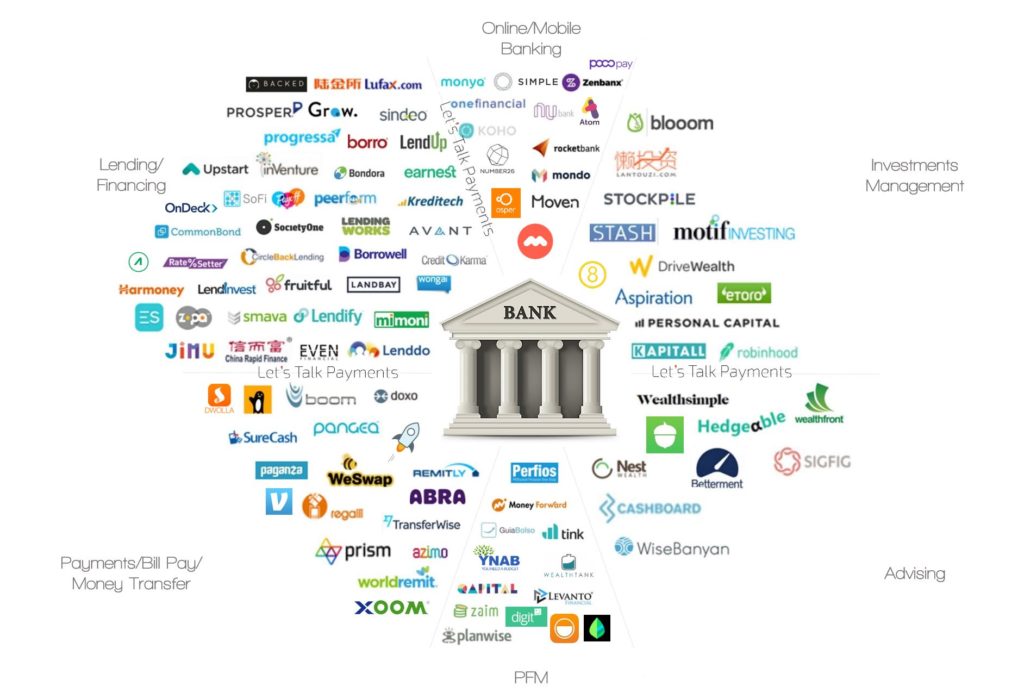
The Sutardja Center for Entrepreneurship & Technology is hosting a financial inclusion collider this semester. For further details on the project and logistics, click here.
In an increasingly connected world, having financial services readily available is absolutely key to businesses being able to innovate, grow and sustain themselves in entrepreneurial environments. However, despite connectivity being higher than ever before, a large number of people around the world remain without access to basic banking and financial services. According to the World Bank’s last report on financial inclusion and development, despite efforts to create better financial services in the developing world, approximately 2bn people still remained unbanked (do not own a basic bank account).
Financial Inclusion, which means that individuals and businesses have access to useful and affordable financial products and services that meet their needs (such as transactions, payments, savings, credit and insurance), is more important than ever before. Access to a transaction account is a first step toward broader financial inclusion since it allows people to store money, and send and receive payments. The World Bank considers financial inclusions one of its key goals in the coming years, and if hoping for Universal Financial Access (UFA) by 2020.

Financial inclusion is widely recognized as one of the most important engines of economic development. Its contributions to GDP, individual and social welfare, and business creation and expansion – particularly small and medium enterprises – have been amply documented. The benefits of financial inclusion for the poor are extremely significant. Financial inclusion is not just necessary for growth, but to avoid financial collapses within families; 28% of adults in developing countries say they would deplete their savings if they were in need of money for an emergency, yet 56% of these adults do not save at a financial institution. Money that literally sits in drawers at houses ends up missing out on high interest rates offered in developing countries (this is a common policy used to curb inflation), and hence has a lower worth or net present value when used in the future.
There are a number of barriers faced by banks that would conventionally be tasked with the job of increasing financial inclusion around the world. For one, people in developing countries (and since the financial crisis, in developed ones too) do not trust banks, in digital or agents, leading to a lack of uptake in possible banking services. A large proportion of people lack financial literacy, and are not interested in the benefits they may receive from banking services (such people only believe in financial services on a need be basis). At the same time, regulatory issues around pricing, capacity and KYC (know your customer) requirements have limited the ability of banks to scale. Add to this the fact that there exists a sever lack of connectivity in several rural areas around the world, or a lack of collaboration with governments; all these factors compound and limit the ability of banks to drive increases in inclusion.
Fintech presents a possible best-response to the lack of financial inclusion – a few years ago, big data was not as important a factor in mainstream conversations about financial inclusion; smartphone penetration in Asia, Africa was nascent, and not much research had been conducted on how smartphones can be used to substitute for conventional banking services in a masterstroke that could easily increase financial inclusion around the world. With smartphone penetration increasing exponentially in developing countries, startups today have a tool to allow small and medium enterprises, individuals and the youth to access working capital, small loans and a number of basic financial services that help increase inclusion.

Konfio in Mexico, Kopo Kopo in Kenya, as well as other companies that employ credit analytics, like DemystData, First Access, RevolutionCredit, and Aire, are finding innovative ways to work with new and existing data to help financial institutions make better credit decisions on customers with little to no traditional credit history. With 6.1bn financial users expected globally by 2020, a number of fintech startups are leveraging the wide reach of smartphones to provide access to credit in emerging markets. Platforms such as LearnLux, which uses interactive tools to engage millennials and connect them to meaningful resources, as well The Wealth Factory are increasingly gearing themselves towards a younger user and ensuring that tomorrow’s generation has access to credit and savings facilities today.
Citibank, in its report Digital Disruption: How FinTech is Forcing Banking to a Tipping Point, says, “In our view, new entrants have a greater chance of success in markets with underdeveloped or fragmented banking systems accompanied with a high level of digital readiness. Emerging market banks are more at risk of market share shift – or more likely lost future retail growth opportunity. Smartphone penetration is higher than banking penetration in many emerging market countries and many emerging markets are digital leaders while they are banking laggards.” Even banks seem to be getting in on opportunities, with a report by the International Institution of Finance, titled “The Business of Financial Inclusion: Insights from Banks in Emerging Markets”, citing that banks are building vast ecosystems with numerous partnerships with startups.
One can see that the space is becoming increasingly saturated with startups.
